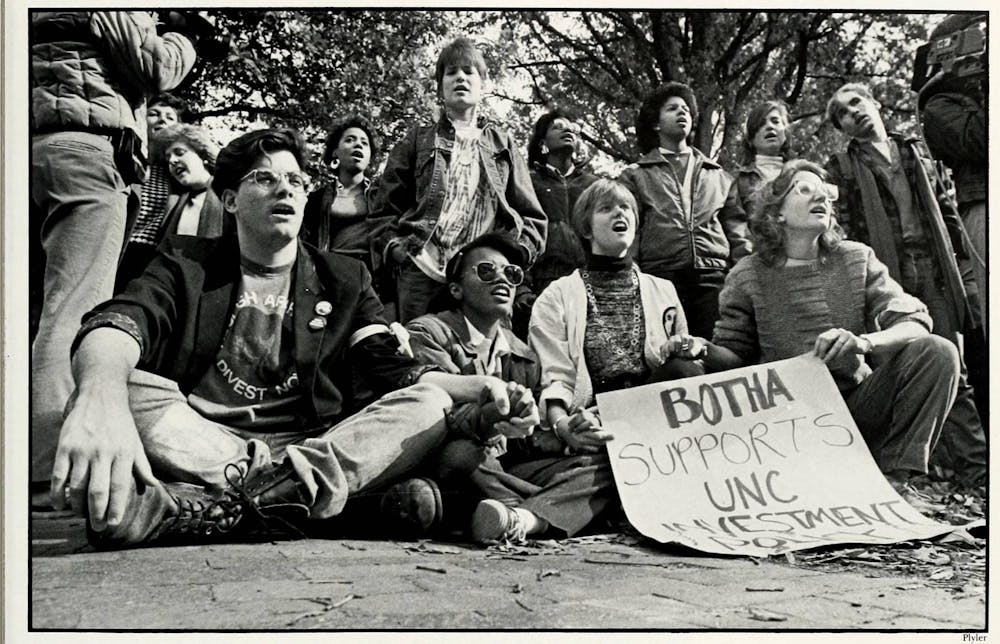In 1986, members of the UNC Anti-Apartheid Support Group built several shantytowns — handmade structures and huts — on Polk Place in support of and solidarity with Black South Africans who were forced to live in structures like them during the nation's apartheid regime.
Students were initially told by campus police to take down the shanties that were defacing public property, The Daily Tar Heel reported on March 19, 1986. Hours later, they gained a permit from then-Chancellor Chris Fordham before holding a rally.
Now, in the same place, pro-Palestinian students and community members from across North Carolina formed an encampment organized by UNC Students for Justice in Palestine protesting the Israel-Hamas war in Gaza.
They set up tents and slept on the grass from Friday morning until Tuesday morning,when police swept and deconstructed the encampment, calling it the "Triangle Gaza Solidarity Encampment." Many participants said they would not leave until UNC divests from funds and products connected to Israel.
On Friday, UNC administrators told students that their tents were in violation with the University's facilities policy and tents were later deconstructed. Students at the encampment re-erected these tents on Sunday evening after a rally brought hundreds to main campus. Police detained more than two dozen individuals and arresting six demonstrators on Tuesday. Following a planned vigil on Tuesday afternoon, students protesting at the flagpole were met with law enforcement officers and interim chancellor Lee Roberts. Police pepper sprayed some protestors.
Students across the country have also formed encampments, organized protests and held sit-ins on their respective campuses — mirroring some of anti-war movements of years before.
UNC SJP published a list of demands on Oct. 27 calling for divestment and terminated contracts with multiple companies — including Sabra, Hewlett-Packard and Caterpillar, Inc. All of these groups have been listed on the Boycott, Divestment, Sanctions movement. The demands also call for transparency in the UNC Management Company's investments.
The UNC Management Company is a group that provides investment management services to the endowments to UNC System schools. Each of the 17 schools in the System, including UNC, has a specific investment portfolio with different funds. UNC Investment Fund — the school's endowment — allocates its assets in different types of equity, private entities, real estate and energy and other funds.
Each year, the company releases its annual report, disclosing what types of funds they are invested in — but not the specific companies.




